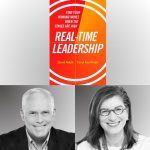Podcast Themes
Multiple perspectives on a topic that you are curious about!

Stephen speaks about how a lot of us grow up in the context of scarcity in our early years but as we grow to leadership levels, we need to embrace a very different paradigm of abundance to lead by trusting and inspiring. He speaks about how we might have scarcity of resources but we all have access to an abundance of possibilities.

Carol and David speak about their M.O.V.E framework; M – Mindful, O – Options Generating, V – Validating the Vantage Point, E – Engage and effect change. The key, they say, borrowing from Viktor Frankl, is to create the space between stimulus and response.

Michiel speaks about how our behaviour comes in the way of our learning when the stakes become higher. He speaks about the link between how team members listen and the link with learning.

Pradeep speaks about how potential rulers were encouraged to patronize the arts and the humanities. He refers to the Hitopadesha and Rayavachakam (written by Krishna Deva Raya) and the wisdom contained in them.

Rajiv speaks about how leaders can be thoughtful about what they delegate thereby creating bandwidth and mind-space for themselves to engage on the most impactful set of activities.

Harsh speaks about how he has grown as a leader over the years and how he has gone about seeking feedback from the people around him. He speaks about the criticality of setting the right climate for feedback for people to tell him what they think of him.

Darleen speaks about how leaders and organizations have thought about apprenticeship in these times. Rohit Kale (who leads Spencer Stuart in India) speaks about how peer mentoring has been impacted in these times but also goes on to speak about the silver lining here as this provides opportunities that didn’t exist earlier for some colleagues to experience the “moment of truth”.

Tom speaks about the limitations of learning a skill on an online platform like YouTube where there are several videos to learn various skills. He talks about the role of feedback in the way we can grow our capabilities in a certain area.

Dan speaks about the nuances in delivering feedback that could help people activate their best self. In organizations, feedback is often the key lever for development but very often, no formal attention is given to how people deliver the feedback. He also speaks about the role of gratitude as an emotion in galvanizing a group of people around you.

Sally speaks about how women often end up getting assessed for performance in their current role while men are seen for their potential. She says, this coupled with women often focusing on loyalty to the role often leads to a double whammy that keeps women stuck in their current place hampering their progress. She speaks about how we can avoid this phenomenon.

Sally speaks about the phenomenon where women, when given positive feedback, might unnecessarily divert it to other causes or shine the light on other team members without adequate acknowledgement of their role in the outcomes. She speaks about the downsides of this behavior.

Sally speaks about two phenomena which are often at play when it comes to feedback. She speaks about how women sometimes can take the developmental feedback to heart and start to question themselves in often unproductive ways. She also speaks about how men can often have double standards and for the same set of behaviours, they might have a different interpretation depending on the gender.